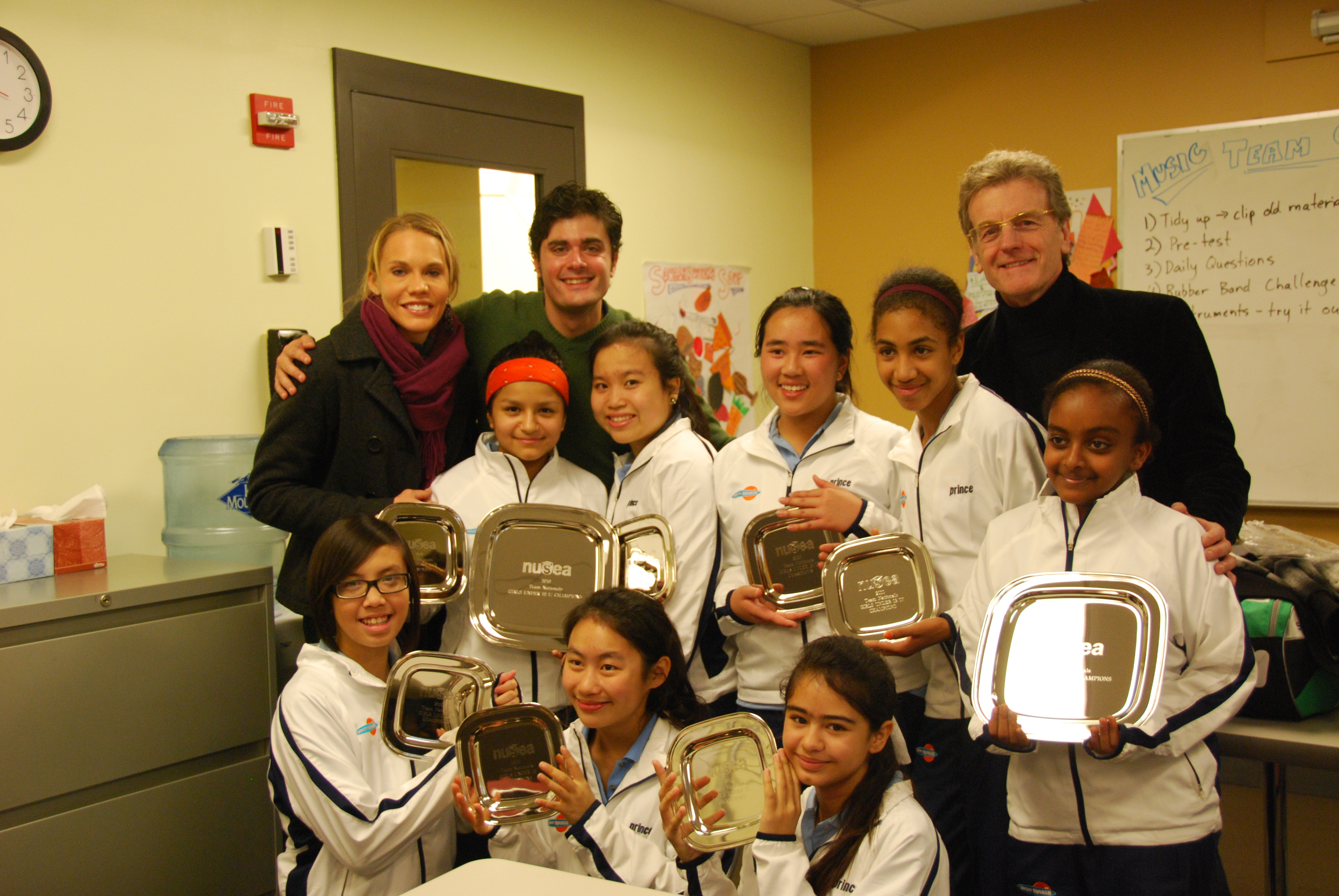
By Angela Grosshans
Photos by Seth Packard
On Martin Luther King Jr. day, while most people lounge around the house enjoying the tail end of a luxurious three day weekend, the urban squash world buzzes with anticipation, waiting for the SquashSmart’s academic director to announce the results of the NUSEA scholastic essay contest. Voices wafting from conversations, squash balls hitting walls, and sneakers squeaking along fresh court floors harmonize to create a sweet symphony, a sure sign that the Seventh Annual National Urban Squash Team Tournament is running on schedule and according to plan.
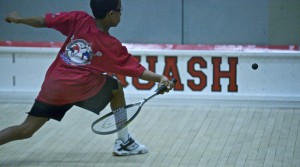
This year’s academic competition takes the form of an essay contest. The assigned topic is “What is Adversity? What kinds of adversity have you overcome and how? What life lesson did you learn from your experience?” Listening to the Girls Under 15 age division winning essay read aloud by author Zoe Russell from urban squash program, SquashBusters, one can’t help but recognize that many of the seemingly carefree youth wandering around the facility know more about this topic than most.
Every January, nearly 300 scholar athletes from nine urban squash programs travel from across the nation to compete in the national team tournament. For one weekend, hundreds of urban squash youth, staff, and supporters catch planes, board buses, and drive rental cars to convene at the SquashBuster’s facility at Northeastern University’s campus. Although fierce competition ensues at both Northeastern and Harvard University during the three day period, one can’t help but feel as though they are a part of an enormous family reunion.
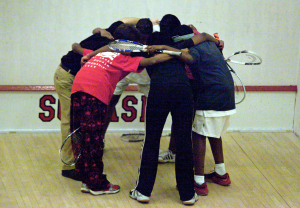
In partnership with U.S. SQUASH, the National Urban Squash and Education Association, NUSEA, hosts the tournament every year. NUSEA enthusiastically organizes this reunion, playing its role as the wise father figure for the nine urban squash programs scattered across the United States. As full functioning members of NUSEA, these organizations work religiously every day to further NUSEA’s mission, “to promote squash and education among urban youth.” Albeit extremely different, the independent programs unite around the three pillars of the urban squash movement: academics, community service, and the sport of squash.
Before SquashBusters, StreetSquash, SquashSmarts, and CitySquash Executive Directors founded NUSEA, existing urban squash organizations struggled to share ideas, organize tournaments, and provide guidance to burgeoning programs. There were implied ways to effectively create and manage programs, but no documented resources available. However, in June 2005, the innovative pioneers joined together to create the umbrella organization. NUSEA then developed a Best Practices guidebook for new and existing programs, membership grants, national measurement criteria, and professional conferences for staff, Executive Directors, and board members.
In order to compete in the National Team Tournament, a program must be either a Provisional member or a Full member of NUSEA. Provisional membership requires one full year of operation under NUSEA guidelines while Full membership status requires two or more operational years under the same guidelines. NUSEA awards Provisional member programs with a one year grant of $10,000 and a $5,000 grant if the organization is granted Full membership.

In total, the urban squash family includes six hundred students. At least several times per week, underprivileged youth across the country travel on foot or by bus from an array of elementary, middle, and high schools to their respective program facilities where they receive individualized one on one tutoring, participate in team building community service projects, and practice squash with some of the most renowned coaches in the United States.
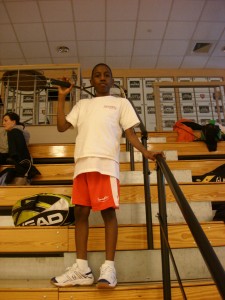
The overall goal of each of these programs is to help low income, motivated students to reach success through a holistic approach to youth development. Each organization uses squash for its own unique purposes and to varying degrees. For some programs, squash serves as an incentive. Untainted passion for the sport runs through the veins of many new students, and getting homework finished early is a small sacrifice for extra court time. Other organizations view squash as an untapped resource for the college admissions process. Because the squash community is so close knit, connections that youth can potentially make with high end institutions are invaluable.
Because of its elitist history, squash remained impermeable for low income populations for many years. The urban squash movement is changing that by slowly exposing underprivileged youth to its intimate, intricate world. These scholar athletes devour the one on one coaching, academic help, and community building that inevitably occurs during program hours. Events like the team tournament provide many urban squash youth with their first chance to compete in a national contest.
This year at the national team tournament in Boston, eight young women dressed in matching track suits complete with the Surf City Squash logo marched into the SquashBuster’s facility, ready to show the world their game. The girls represented San Diego with the grace of women way beyond their years when they won both the Girls Under 19 age division and the Girls Under 15 age division.
StreetSquash, in fierce red T-shirts with the words StreetSquash printed on the back took the main draw finalist position for the Girls Under 17/19. SquashBusters beautifully represented the first urban squash program by winning the consolation trophy. Although the team lost in the finals, the cheering outside the court never waned.
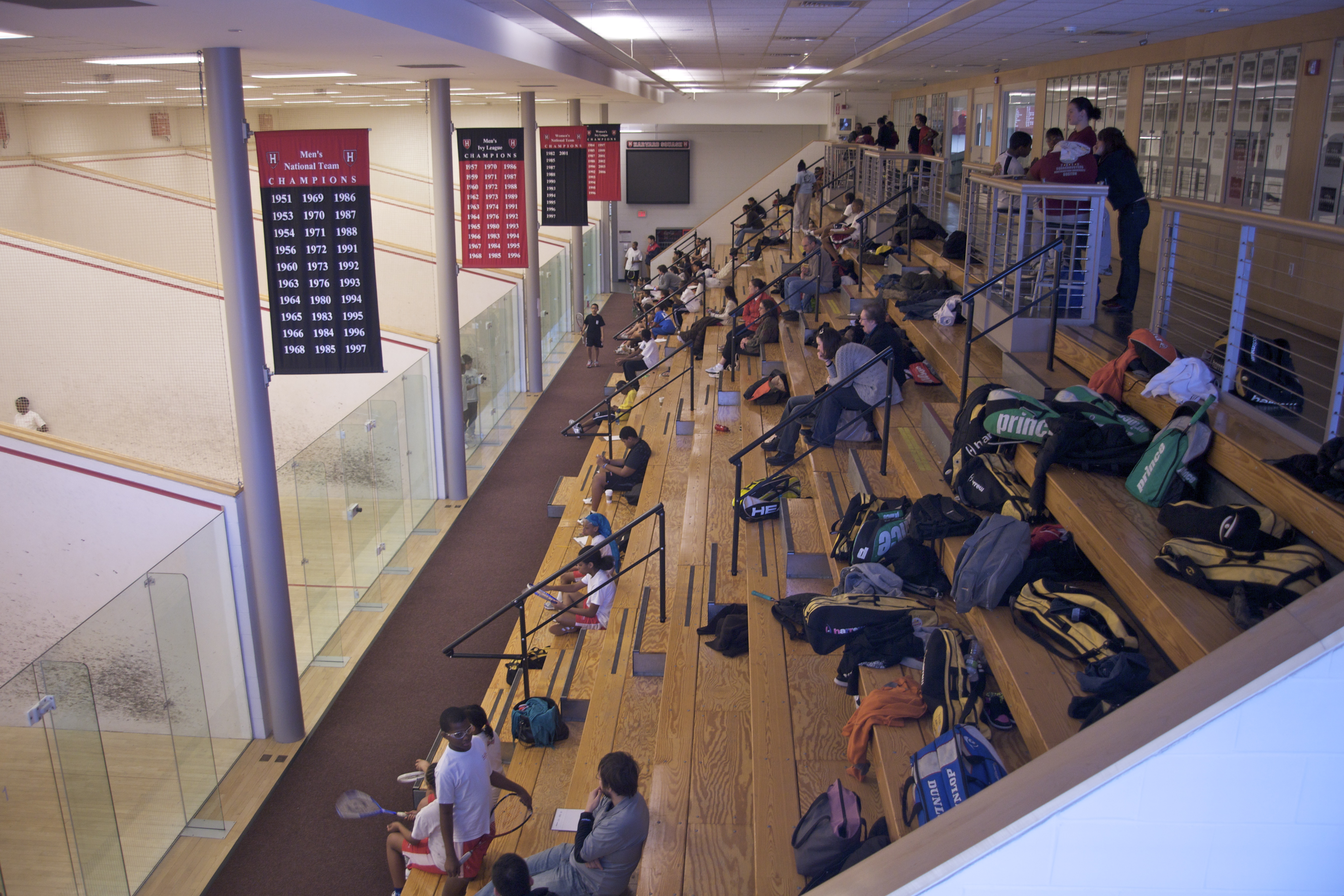
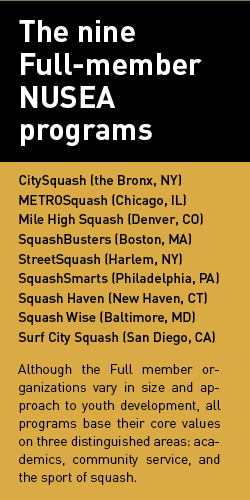
CitySquash played Surf City Squash in the finals of the Girls Under 15 and walked away with a second place trophy. Dozens of fans gathered around court number two to catch a glimpse of these teams from opposite coasts serve and return with tremendous focus and strength not often found in teenage girls.
Squash Haven took the Girls Under 13 trophy home on their short trip back to New Haven, while CitySquash teams won the main draw and consolation division. These tiny pre-adolescent girls, most no more than five feet tall, represented their programs in a big way.
The confident SquashBusters Boys Under 17/19 team swaggered into Northeastern on Monday morning and dominated their division, winning the main draw and the consolation match. A by-stander would never know these boys were still in high school, much less underprivileged in any kind of way. The young men played squash like seasoned professionals, effectively balancing style and fierce competition.
Squash Haven took the trophy home in the Boys Under 15 while SquashSmarts took the consolation prize back to Philadelphia.
Like their young girls teams, SquashHaven dominated the Boys Under 13, winning both the main draw and consolation titles. CitySquash was the main draw finalist.
Just like any family, the students from these nine urban squash programs exhibit their share of healthy sibling rivalry. However, it is apparent that underneath the competitive vibe lies the foundation that these organizations are rooted in and continue building on: Love.


